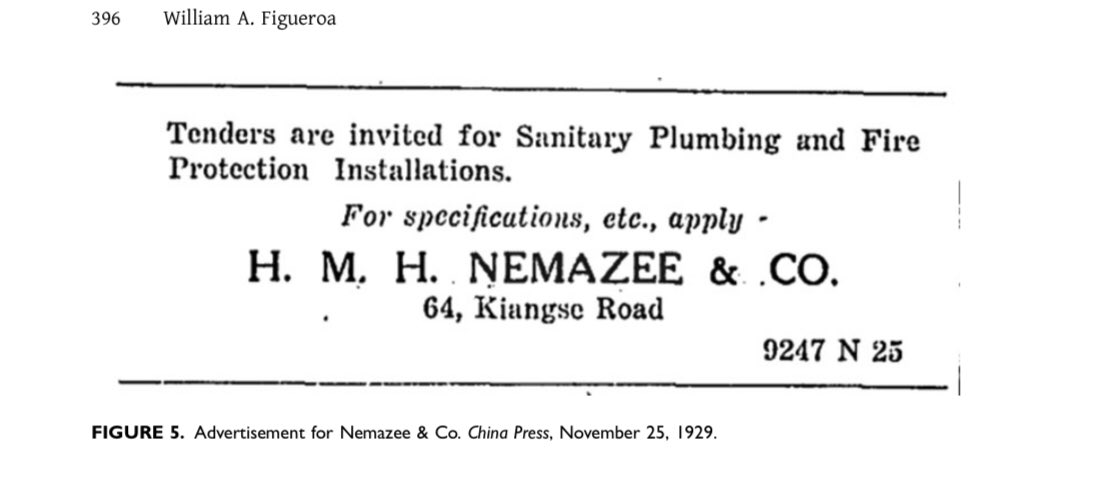Everything You Need To Know About the 25-Year #IranChina Agreement - A #Thread
Why it's not a "big deal" and the myth of a $400 (or $500...) billion investment.
W/ articles by @JuliaGurol @yarbatman @jacoposcita @Lucille_Greer_ and @jonathandfulton
#Iran #China
Why it's not a "big deal" and the myth of a $400 (or $500...) billion investment.
W/ articles by @JuliaGurol @yarbatman @jacoposcita @Lucille_Greer_ and @jonathandfulton
#Iran #China

Yesterday, Iran and China signed an agreement expressing a desire to increase co-operation and trade relations over the next 25 years. This deal has been hailed as a massive overhaul of Sino-Iranian relations that will see China invest $4-600 billion into the Iranian economy. 1/
Opponents have decried it as the "selling of Iran to China" and claimed it contains provisions for Chinese occupation of Iranian land and sale of islands. Iranian conservatives (and U.S pundits) see it as "America defeated". But what is the truth of the matter? 2/
First off, nowhere - absolutely nowhere - in the text is any numerical figure mentioned. There are also no provisions whatsoever for the sale of islands, military bases, occupation, or other alarmist claims. 3/
president.ir/EN/91435
president.ir/EN/91435
The agreement is an aspirational document. It provides no methods for enforcement, measurable goals, or specific programs. It calls for vague “cooperation” through “enhancement of contacts” in a number of areas. in Iran by 10 fold in 2016, with little progress to show for it. 4/
It’s notable that both pledges came in the wake of a new U.S. president with a new int'l policy. This doesn’t mean these ties are driven by U.S policy, but the tendency to trumpet them, and exaggerate them, is partly driven by the desire to project strength internationally. 5/
Whether the agreement would be “mutually beneficial” depends on what perspective you’re taking. For the Iranian state, it provides several benefits: a stable partnership with China means a stable market for oil at a time when U.S. sanctions have seriously hurt their revenues. 6/
It also projects an image of strength and represents an attempt to break out of the diplomatic isolation imposed by the United States.
For China, it provides similar benefits – a stake in a major source of oil (although it remains a tiny fraction of China’s overall... 7/
For China, it provides similar benefits – a stake in a major source of oil (although it remains a tiny fraction of China’s overall... 7/
...a foreign market for Chinese goods (yet very small overall), and both real and symbolic progress towards the realization of the Belt and Road Project and the expansion of China’s global reach. Iran is a piece of China’s larger strategy rather than strategically critical. 8/
From the perspective of the Iranian people, things look very different. Questions of "selling Iran" aside, closer relations with China remain unpopular with many segments of the Iranian population. Some take issue with China’s treatment of the #Uighur Muslims, while others... 9/
...object to the flood of cheap, low-quality Chinese goods, which wreak havoc on the local economy and cause a “race to the bottom”. The question "is it mutually beneficial to Iran and China" would be better rendered as "who in Iran and China does it benefit?" 10/
In terms of defense, the items actually mentioned – joint military exercises, sharing of intelligence related to terrorism, co-operation on international crimes – are all things that already exist, and so are no great shift in policy even if they becomes more formalized. 11/
They are also already in place with most neighboring Gulf states. In short, this agreement represents an attempt to bring Sino-Iranian relations back in line with the rest of the Middle East, rather than expansion of beyond the norm for China’s engagement with the region. 12/
In terms of how much does it affect overall U.S policy, the answer is “not very much.” China has no real capacity to oppose the sanctions or even things like the U.S assassination of Soleimani. It does provide the Iranian state with some breathing room... 13/
but little relief to the victims of the sanctions: the Iranian people. Any increase in relations going forward as a result of this deal is likely to be modest, in line with relations with other Gulf states, and balanced against the reality that China has little leverage. 14/
While China remains Iran’s top oil importer, they have not increased investment, imports, or exports at the exponential levels pledged in 2016, and are not likely to do so in 2021 either. The deal is unlikely to fundamentally threaten the balance of power in the Middle East. 15/
China tends to choose stable relations with geostrategic advantages over volatile ones likely to spark conflict. For all its propaganda, China, like Iran, is more interested in its immediate geopolitical goals than a revolution. 16/
For more information, please check out the following excellent articles:
by @jacoposcita
ispionline.it/en/pubblicazio…
by @jacoposcita
ispionline.it/en/pubblicazio…
@jadaliyya @AlJazeera_World @AJEnglish @ForeignPolicy @AIS_1967 @SHAFRhistorians @iranstudiesUK @thocpodcast @bbcpersian @IranPodcast @NegarMortazavi @arash_tehran @MaysamBehravesh
Quick correction, 4 should read: "China also pledged to increase investment in Iran by 10 fold in 2016, with little progress to show for it."
And a quick follow-up, and another small correction!
https://twitter.com/IranChinaGuy/status/1375949786612969474
• • •
Missing some Tweet in this thread? You can try to
force a refresh








